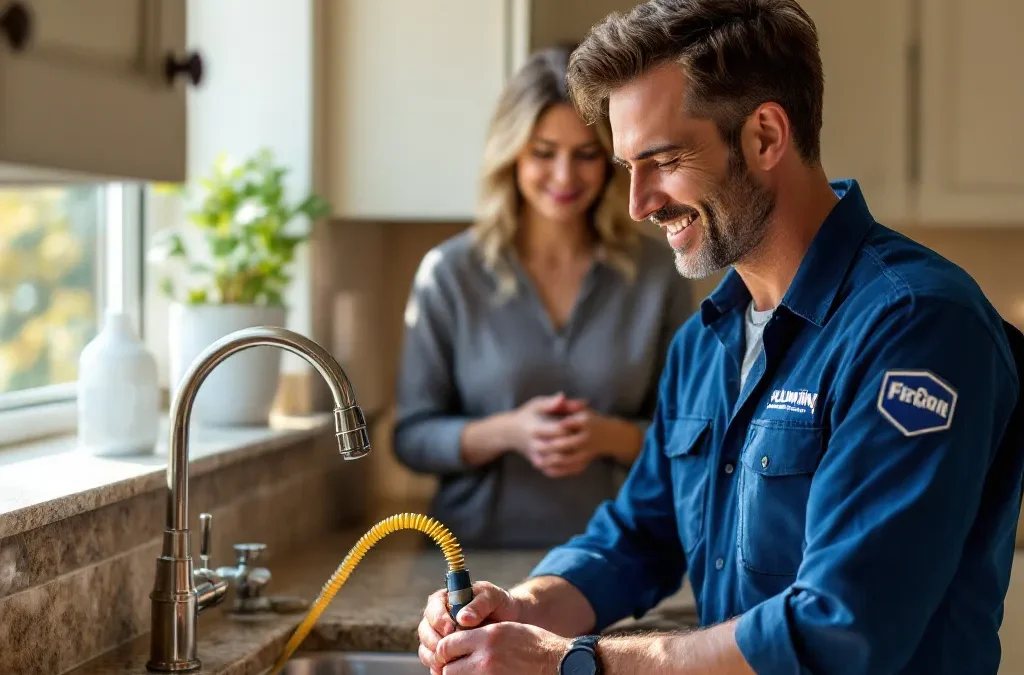I. Introduction
Preventive drain cleaning refers to the process of routinely inspecting and maintaining your drainage system to prevent future issues. Just like regular check-ups for your health, preventive maintenance is crucial for your home’s plumbing. By investing in preventive drain cleaning, homeowners can save thousands of dollars in potential repairs and replacements, making it a smart financial decision.
II. Common Drain Issues
Homeowners often face various drain issues that can lead to costly repairs. Clogs and backups are among the most common problems, often caused by debris accumulation in pipes. Other serious concerns include root intrusion from nearby trees, corrosion and wear from age, and dirty drains which can emit foul odors, making your living environment uncomfortable.
III. Signs You Need Preventive Drain Cleaning
There are several signs that indicate the need for preventive drain cleaning. If you notice slow drainage in sinks, tubs, or toilets, it’s a strong signal that your drains may require attention. Additional signs include frequent backups or overflows, unpleasant smells emanating from drains, gurgling sounds in plumbing, and increased pest activity near drain areas, all of which signal potential problems.
IV. Benefits of Preventive Drain Cleaning
Preventive drain cleaning offers numerous benefits that go beyond immediate savings. Firstly, it can save you significant money on repairs and clean-ups resulting from emergency situations. Furthermore, this proactive approach extends the lifespan of your plumbing and drainage systems, enhances overall hygiene by reducing bacteria and foul odors, increases your home’s value, and ultimately provides peace of mind through effective management of your property.
V. Preventive Drain Cleaning Techniques
Various techniques are employed in preventive drain cleaning that ensure systems remain unobstructed. Regular inspections and assessments can help identify potential problems before they escalate. Other methods, such as hydro jetting, snaking, and biochemical treatments, effectively remove blockages and debris. To maintain optimal flow, creating a routine maintenance schedule is imperative.
VI. DIY vs. Professional Services
When considering drain cleaning, many homeowners weigh the pros and cons of DIY solutions against professional services. DIY methods can be economical, but they may not always provide a thorough cleaning or solve deeper issues.
Calling in professionals is essential when you face persistent problems or difficult blockages, as they have the expertise and specialized tools for comprehensive cleaning.
Moreover, comparing the costs of DIY solutions with professional preventative cleaning can often reveal that the latter saves you money and reduces the risk of future issues.
VII. How Often Should You Schedule Preventive Drain Cleaning?
The frequency of preventive drain cleaning typically depends on household size and usage patterns. For a family home, scheduling this service every 1-2 years is generally advisable. However, factors such as specific plumbing needs, seasonal changes, and the age of your plumbing system may influence how often you should have preventive cleaning done.
VIII. Conclusion
To sum up, the benefits of preventive drain cleaning are substantial and far-reaching. Homeowners are encouraged to take action by scheduling routine services that ensure their plumbing systems remain in good condition.
By adopting these proactive maintenance strategies, you can enjoy long-term savings, avoid costly emergency repairs, and maintain a clean and healthy home environment.
Ready to secure your peace of mind? Call us now at (916) 562-2345 to get a quote and protect your home from preventable plumbing disasters.


